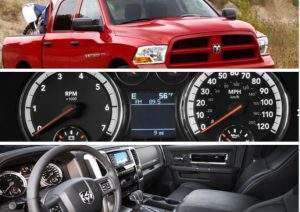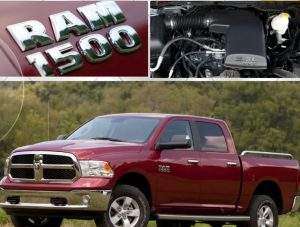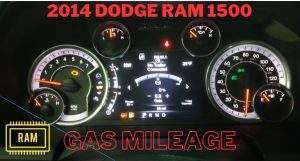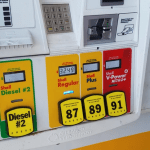The Ford F-150, a widely cherished and highly sought-after truck in the United States, has earned a reputation for its exceptional performance, longevity, and adaptability. As a result, prospective buyers frequently inquire about the F-150’s fuel holding capacity, a crucial question in the purchasing process.
In this article, we aim to address this inquiry comprehensively and delve into other pertinent aspects of the F-150, such as the variables that impact fuel capacity and strategies for enhancing fuel efficiency.
Table of Contents
Ford F-150
Overview
For more than 40 years, the Ford F-150 has maintained its position as the top-selling truck in the United States, providing an array of features and capabilities that accommodate diverse requirements.
Its impressive towing and payload capacities, comfortable and sophisticated interior, and advanced technological offerings have rendered it a favored option for both truck aficionados and professionals.
Ford f150 Fuel Tank Capacity
The fuel tank capacity of a Ford F-150 can be inconsistent, contingent on the model, engine preferences, and configurations selected. Nevertheless, it is common for the majority of F-150 trucks to feature either a 23-gallon or 36-gallon fuel tank.
This implies that, based on personal driving habits and fuel efficiency, one can anticipate a considerable distance between necessary refueling occurrences.
Fuel Economy
Fuel economy for the Ford F-150 can range between 20 to 26 miles per gallon (MPG) on the highway and 17 to 20 MPG in the city, depending on the engine and configuration.
As with any vehicle, fuel efficiency will depend on various factors such as driving habits, vehicle maintenance, and environmental conditions.
Factors
Engine Options
Ford offers several engine options for the F-150, including a 3.3L V6, 2.7L EcoBoost V6, 3.5L EcoBoost V6, 5.0L V8, and 3.0L Power Stroke Diesel V6. Different engines provide different levels of power and fuel efficiency, which can influence your truck’s fuel tank capacity.
Cab and Bed Configurations
The Ford F-150 comes in three cab configurations: Regular Cab, SuperCab, and SuperCrew. Additionally, there are three bed lengths: 5.5 feet, 6.5 feet, and 8 feet.
The combination of cab and bed configurations can affect the fuel tank capacity and overall weight of the vehicle, thus impacting fuel efficiency.
Fuel Tank Options
Some Ford F-150 models offer the option to upgrade to a larger fuel tank, providing an extended range for those who need it. Choosing a larger fuel tank can increase the total capacity of your truck, allowing you to travel greater distances between fill-ups.

Comparison
Other Ford Trucks
It’s essential to consider other Ford trucks, such as the Ford F-250 and F-350, when discussing fuel tank capacities.
These trucks typically have larger fuel tanks than the F-150, offering capacities up to 48 gallons in some cases.
However, they also tend to have lower fuel efficiency due to their larger size and increased power.
Competitors
The Ford F-150’s competitors, such as the Chevrolet Silverado, Ram 1500, and GMC Sierra, also offer various fuel tank capacities.
Generally, their fuel capacities range from 21 to 36 gallons. It’s essential to research and compare fuel capacities and efficiencies when shopping for a new truck.
Maintenance
Improving Fuel Efficiency
To get the most out of your Ford F-150, it’s crucial to maintain and improve its fuel efficiency. This can include regular maintenance, such as oil changes, tire rotations, and engine tune-ups, as well as adopting fuel-saving driving habits.
Regular Maintenance
Staying up to date with your Ford F-150’s maintenance schedule can help ensure its optimal performance and fuel efficiency.
Be sure to check your owner’s manual for the recommended maintenance intervals and follow them accordingly.
Tips
Fuel Saving Tips
There are several ways to save fuel and improve the overall efficiency of your Ford F-150:
- Maintain proper tire pressure: Underinflated tires can increase rolling resistance, leading to decreased fuel efficiency.
- Avoid idling: Turn off your engine when parked or waiting for extended periods.
- Use cruise control: This can help maintain a consistent speed and improve fuel efficiency on highways.
- Accelerate and brake gently: Aggressive driving can significantly reduce fuel efficiency.
- Remove unnecessary weight: Carrying excess weight in your truck bed can negatively impact fuel economy.
Smart Driving Habits
Adopting smart driving habits can not only improve your Ford F-150’s fuel efficiency but also prolong its lifespan.
Be mindful of your acceleration, braking, and overall driving style to minimize wear and tear on your truck.
Conclusion
In conclusion, the fuel tank capacity of a Ford F-150 can range from 23 to 36 gallons, depending on the model, engine options, and configurations.
By understanding the factors that affect fuel capacity and efficiency, as well as implementing proper maintenance and driving habits, you can make the most of your F-150’s capabilities.
Remember to compare the Ford F-150 with its competitors to make an informed decision when purchasing a new truck.
FAQs
- What is the fuel tank capacity of a Ford F-150?
Answer: The fuel tank capacity of a Ford F-150 ranges from 23 to 36 gallons, depending on the model, engine options, and configurations. - How can I improve the fuel efficiency of my Ford F-150?
Answer: You can improve fuel efficiency by maintaining proper tire pressure, avoiding idling, using cruise control, accelerating and braking gently, and removing unnecessary weight. - How does the Ford F-150 compare to its competitors in terms of fuel tank capacity? Answer: The Ford F-150’s competitors, such as the Chevrolet Silverado, Ram 1500, and GMC Sierra, offer fuel capacities ranging from 21 to 36 gallons.
- What maintenance should I perform to ensure optimal fuel efficiency in my Ford F-150?
Answer: Stay up to date with your Ford F-150’s maintenance schedule by checking your owner’s manual for the recommended maintenance intervals and following them accordingly. - How does the choice of engine and configuration affect the Ford F-150’s fuel tank capacity?
Answer: The choice of engine and configuration can impact the fuel tank capacity of your Ford F-150. Different engines provide varying levels of power and fuel efficiency, while the combination of cab and bed configurations can affect the fuel tank capacity and overall weight of the vehicle.








